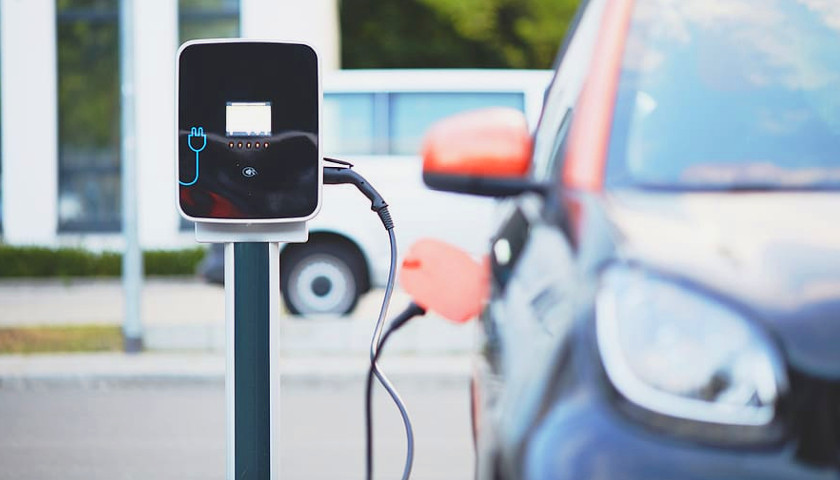Tennessee Department of Environment and Conservation (TDEC) officials announced Wednesday they have entered a partnership to install charging stations for Electric Vehicles (EVs) at all 56 state parks.
But, when asked, TDEC officials would not discuss how or whether the demand for these charging stations exceeds any possible costs to the state or anyone else.
In a press release, TDEC officials said they have partnered with the California-based Rivian to install that company’s EV charging stations at Tennessee’s state parks.
“EV charging at Tennessee State Parks will initially be free and drivers will be able to easily monitor their vehicle’s charging session via the Rivian app. Any potential future cost to drivers may be dependent on system wide utilization to recover electricity costs. In addition to overseeing design and installation, Rivian will provide any necessary utility upgrades associated with the charger installation at no cost to the state or taxpayers,” the press release said.
“Rivian will also cover all network access fees, equipment service, and maintenance for 10 years. Under the estimated timeline, Rivian will begin site surveys and engineering over the summer, with installation beginning as early as fall 2021 and stretching into March 2022.”
The Tennessee Star emailed TDEC officials Wednesday and asked them if, despite what the press release said, they plan to put even one cent of taxpayer money into this project. We also asked them to cite the demand Tennesseans have for EV charging stations right now. TDEC officials did not respond before Wednesday’s stated deadline.
Officials with TDEC and the Tennessee Valley Authority announced in February they will develop more electric car-charging stations in the state, at an anticipated cost of $20 million. TDEC and TVA officials said that to get the money they “will leverage various funding sources.”
General Motors (GM) officials announced in January they would phase out petroleum-powered cars and trucks and sell only vehicles that have zero tailpipe emissions by 2035. GM officials also will invest nearly $2 billion in its Spring Hill manufacturing plant in Maury County to build fully electric vehicles.
In 2013 and 2015, Tennessee Watchdog found that people seldom used taxpayer-funded charging stations in Nashville. As Watchdog also reported, Tennessee officials in 2015 spent $181,250 to place three charging stations at the Nashville International Airport. In five weeks, 29 cars were charged for a flat fee of $2 each. At that rate, the charging stations would pay for themselves in about 300 years.
– – –
Chris Butler is an investigative journalist at The Tennessee Star. Follow Chris on Facebook. Email tips to [email protected].








